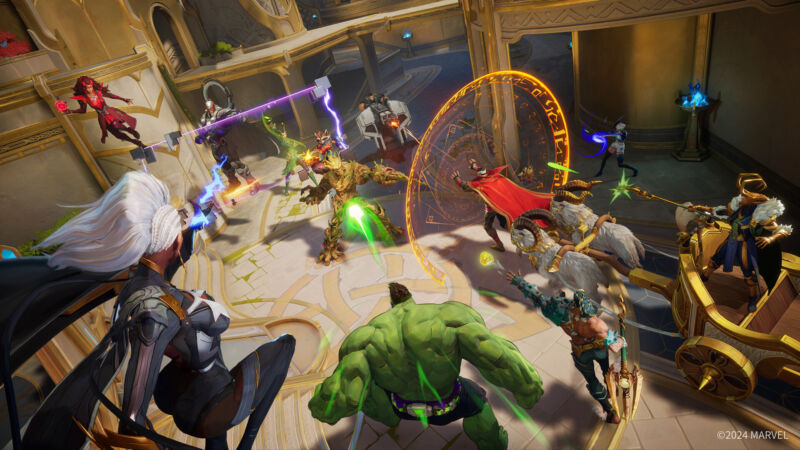Early streamers agreed not to “belittle the gameplay” or “make disparaging… comments.”

The developers of team-based shooter Marvel Rivals have apologized for a contract clause that made creators promise not to provide “subjective negative reviews of the game” in exchange for early access to a closed alpha test.
The controversial early access contract gained widespread attention over the weekend when streamer Brandon Larned shared a portion on social media. In the “non-disparagement” clause shared by Larned, creators who are provided with an early download code are asked not to “make any public statements or engage in discussions that are detrimental to the reputation of the game.” In addition to the “subjective negative review” example above, the clause also specifically prohibits “making disparaging or satirical comments about any game-related material” and “engaging in malicious comparisons with competitors or belittling the gameplay or differences of Marvel Rivals.”
In a Discord post noticed by PCGamesN over the weekend, Chinese developer NetEase apologized for what it called “inappropriate and misleading terms” in the contract. “Our stand is absolutely open for both suggestions and criticisms to improve our games, and… our mission is to make Marvel Rivals better [and] satisfy players by those constructive suggestions.”
In a follow-up posted to social media this morning, NetEase went on to “apologize for any unpleasant experiences or doubts caused by the miscommunication of these terms… We actively encourage Creators to share their honest thoughts, suggestions, and criticisms as they play. All feedback, positive and negative, ultimately helps us craft the best experience for ourselves and the players.” NetEase says it is making “adjustments” to the contract “to be less restrictive and more Creator-friendly.”
What can you say, and when can you say it?
Creators and press outlets (including Ars) routinely agree to embargoes or sign review and/or non-disclosure agreements to protect sensitive information about a game before its launch. Usually, these agreements are focused on when certain information and early opinions about a game can be shared. These kinds of timing restrictions can help a developer coordinate a game’s marketing rollout and also prevent early reviewers from having to rush through a game to get a lucrative “first review” up on the Internet.
Sometimes, companies use embargo agreements to urge or prevent reviewers from sharing certain gameplay elements or story spoilers until a game’s release in an effort to preserve a sense of surprise for the player base. There are also sometimes restrictions on how many and/or what kinds of screenshots or videos can be shared in early coverage for similar reasons. But restrictions on what specific opinions can be shared about a game are practically unheard of in these kinds of agreements.
FURTHER READING
Stealth marketing: Microsoft paying YouTubers for Xbox One mentions [updated]Nearly a decade ago, Microsoft faced criticism for a partnership with a Machinima video marketing campaign that paid video commentators for featuring Xbox One game footage in their content. That program, which was aped by Electronic Arts at the time, restricted participants from saying “anything negative or disparaging about Machinima, Xbox One, or any of its games.”
In response to the controversy, Microsoft said that it was adding disclaimers to make it clear these videos were paid promotions and that it “was not aware of individual contracts Machinima had with their content providers as part of this promotion and we didn’t provide feedback on any of the videos…”




